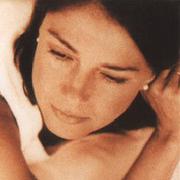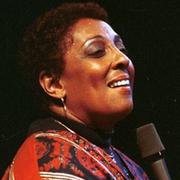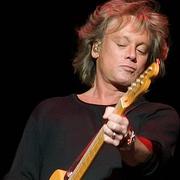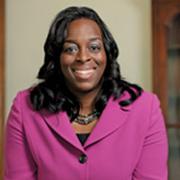Carmen McRae
| 基本信息 | |||
|---|---|---|---|
| 姓名 | Carmen McRae | 别名 | 暂无 |
| 国籍 | 美国 | 出生地 | |
| 语言 | 英语 | 性别 | 女 |
| 生日 | 星座 | ||
| 身高 | 体重 | ||
作为一位弹得一手漂亮的钢琴,又能用歌声打动无数人的爵士音乐家,卡门麦克蕾的认真执著就和她多才多艺一样,一直是人们津津乐道的话题。这位34岁才发行首张个人专辑的名伶,不断从前辈级的人物身上吸取营养,最终以玩世不恭的“拖拍”式唱腔确立了自己独树一帜的风格。从她的歌声中,我们能明显地发现“苦味派”爵士歌后比莉哈丽黛的影响。Carmen的低沉嗓音在跳出来即兴时,抑扬顿挫之间,韵味已经完全洋溢其中,发烧友常说的〝听出耳油〞大概已与此相距不远.Carmen McRae的歌喉是不能和Ella Fitzgerald或是Sarah Vaughan相比的,但是在爵士乐的地位她却和她们是不相上下的。Billie Holiday是她最欣赏的女歌手,而她在许多表现的感觉也真的与其很神似。by Scott YanowCarmen McRae always had a nice voice (if not on the impossible level of an Ella Fitzgerald or Sarah Vaughan) but it was her behind-the-beat phrasing and ironic interpretations of lyrics that made her most memorable. She studied piano early on and had her first important job singing with Benny Carters big band (1944) but it would be another decade before her career really had much momentum. McRae married and divorced Kenny Clarke in the 1940s, worked with Count Basie (briefly) and Mercer Ellington (1946-47), and became the intermission singer and pianist at several New York clubs. In 1954 she began to record as a leader and by then she had absorbed the influences of Billie Holiday and bebop into her own style. McRae would record pretty steadily up to 1989 and, although her voice was higher in the 1950s and her phrasing would be even more laidback in later years, her general style and approach did not change much through the decades. Championed in the 1950s by Ralph Gleason, Carmen McRae was fairly popular throughout her career. Among her most interesting recording projects were participating in Dave Brubecks the Real Ambassadors with Louis Armstrong, cutting an album of live duets with Betty Carter, being accompanied by Dave Brubeck and George Shearing, and closing her career with brilliant tributes to Thelonious Monk and Sarah Vaughan. Carmen McRae, who refused to quit smoking, was forced to retire in 1991 due to emphysema. She recorded for many labels including Bethlehem, Decca (1954-58), Kapp, Columbia, Mainstream, Focus, Atlantic (1967-70), Black Lion, Groove Merchant, Catalyst, Blue Note, Buddah, Concord and Novus.
 加载评论内容,请稍等......
加载评论内容,请稍等......













